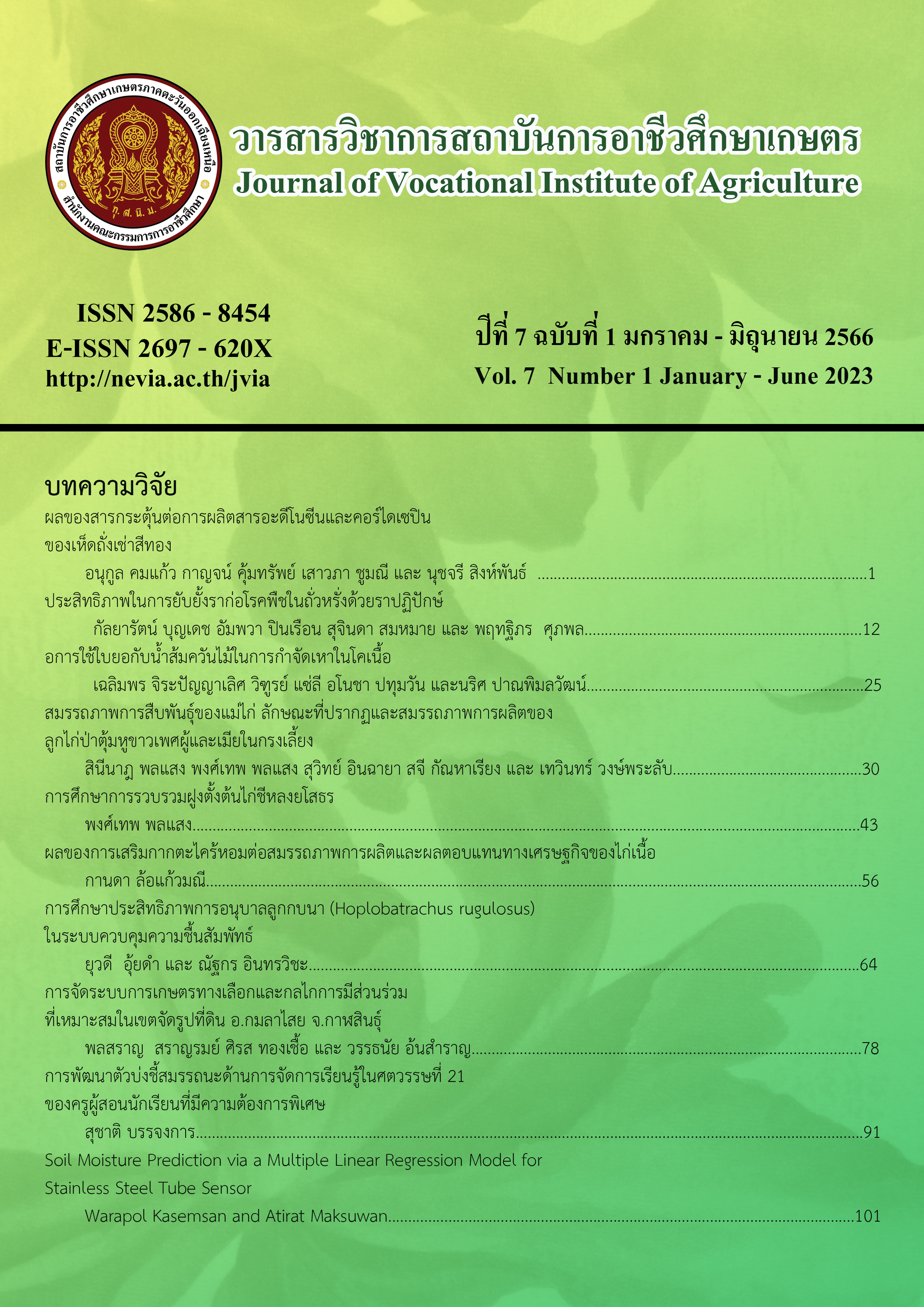Development of the Competency Indicators for 21st Century of Teacher for Students with Special Needs
Main Article Content
Abstract
The objective of this research was to develop the competency indicators for 21st century of teacher for students with special needs. The samples of this research were 33 specialists selected by purposive sampling technique. A questionnaire was used for collecting data based on Delphi technique. Data was analyzed by frequency distributions, median, mode, differences between median and mode, interquartile range and consistency consideration. The resultsrevealed that the competency indicators for 21st century of teacher for children with special needs consisted of 1) eight indicators forthe curriculum implementation and development aspect 2) eight indicators for the learning design aspect 3) nine indicators for the learning procedure aspect 4) six indicators for media innovation and technology for the learning management aspect 5) five indicators for the evaluation and assessment aspect 6) ten indicators for the classroom administration and management aspect 7) seven indicators for the research for learner development aspect and 8) nine indicators for the character of teacher aspect.
Article Details

This work is licensed under a Creative Commons Attribution-NonCommercial-NoDerivatives 4.0 International License.
The content and information in articles published in the Journal of Vocational Education in Agriculture are the opinions and responsibility of the article's author. The journal editors do not need to agree or share any responsibility.
Articles, information, content, etc. that are published in the Journal of Vocational Education in Agriculture are copyrighted by the Journal of Vocational Education in Agriculture. If any person or organization wishes to publish all or any part of it or to do anything. Only prior written permission from the Journal of Vocational Education in Agriculture is required.
References
National Strategy Secretariat Office (2018). National Strategy 2018–2037. Bangkok: Office of the National Economic and Social Development Board. (in Thai)
Secretariat of the National Reform Commission. (2019). Education Reform Plan. Bangkok: Office of the National Economic and Social Development Board. (in Thai)
Office of the Education Council. (2013). An analysis of the status of the whole system of teacher development and recommendations Guidelines for teacher development for student quality. Bangkok: Prikwarn Graphic Co.,Ltd. (in Thai)
National PISA Operations Center. (2021). PISA 2018 Assessment Results: Reading, Mathematics and Science. Bangkok: The Institute for the Promotion of Teaching Science and Technology (IPST). (in Thai)
Office of the Education Council. (2019). National Education Standards 2018. Bangkok: Ministry of Education. (in Thai)
Srisa–ard, B. (2013). Statistical Methods for Research: Volume 1. 5th ed. Bangkok: Suweeriyasan Company Limited. (in Thai)
Srisa–ard, B. (2017). Introduction to Research. 10th ed. Bangkok: Suweeriyasan Company Limited. (in Thai)
UNESCO Office Bangkok and Regional Bureau for Education in Asia and the Pacific. (2004). Embracing diversity: toolkit for creating inclusive, learning-friendly environments. Bangkok: UNESCO.
Phromsaard, R. (2018). The Development of Mentoring Model to Enhance Learning Management Competencies of Pre-Service Teachers in Phuket Rajabhat University, (Doctoral dissertation, Srinakharinwirot University). (in Thai)
Bhummarin, M., et al. (2017). Developing Job Competencies and Indicators for Special School Education Administrators. Dhonburi Rajabhat University Journal, 11(2), 7-18. (in Thai)

